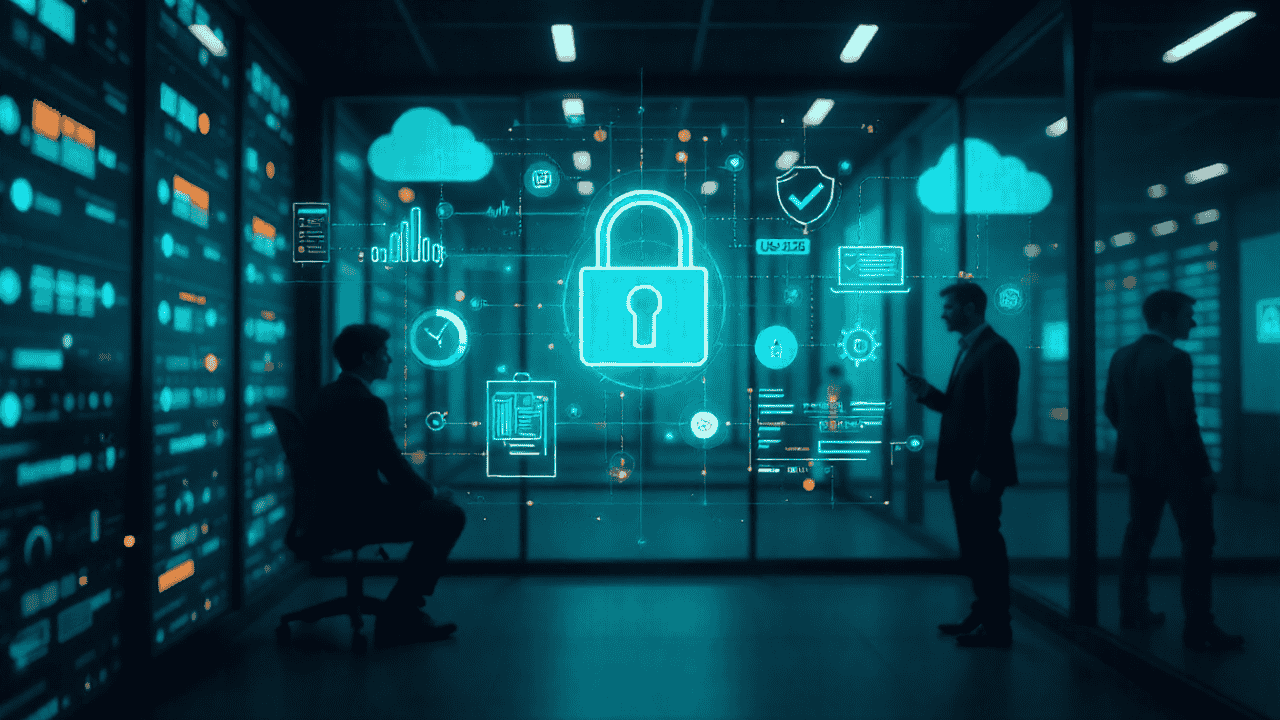
In an era where digital advancements have become the cornerstone of organizational operations, enterprise security stands as the guardian of informational integrity and operational continuity. This multifaceted domain encompasses not only the safeguarding of proprietary business insights but also the protection of sensitive employee and customer data in compliance with evolving privacy regulations. At its core, enterprise security is the strategic implementation of practices, tools, and policies designed to shield an organization’s digital and physical assets from a plethora of cyber threats including, but not limited to, cyberattacks, social engineering, and physical breaches.
The Paramount Importance of Enterprise Security in Today's Digital World
As the digital landscape continuously expands, so does the sophistication of threats posed by cyber adversaries. High-profile breaches affecting major corporations like Facebook, Yahoo, and Equifax underscore the critical need for robust enterprise security measures. This necessity is further amplified by the shifting paradigm towards cloud-based infrastructures, presenting new challenges in data protection and system integrity.
- Data Protection: Safeguarding digital assets, including customer information and intellectual properties, from unauthorized access and theft
- Regulatory Compliance: Adhering to stringent data protection standards (e.g., GDPR, HIPAA) to avoid legal repercussions and financial penalties.
- Business Continuity: Ensuring operational resilience in the face of cyber incidents to minimize downtime and financial losses.
- Reputation Management: Maintaining trust among clients and partners by demonstrating a commitment to data security.
- Intellectual Property Protection: Securing competitive advantages by preventing espionage and theft of proprietary information.
Key Components of an Enterprise
Security Program
Implementing an effective enterprise
security strategy requires a holistic approach, encompassing various components
that work in synergy to fortify an organization against potential threats. The
cornerstone elements of an enterprise security program include:
- Security Governance: Establishing a clear framework for security oversight, including defined roles and decision-making processes.
- Access Control: Implementing robust authentication and authorization mechanisms to ensure that only authorized personnel access sensitive information.
- Network Security: Deploying firewalls, intrusion detection systems, and network segmentation to protect the organizational network infrastructure.
- Endpoint Security: Securing devices within the network through antivirus software, endpoint detection, and mobile device management.
- Data Encryption: Utilizing encryption for data in transit and at rest to prevent unauthorized data interception.
- Vulnerability Management: Conducting regular security assessments to identify and mitigate vulnerabilities.
- Identity and Access Management (IAM): Managing user identities and permissions effectively to minimize insider threat risks.
- Physical Security: Protecting physical assets through surveillance, access control systems, and environmental monitoring.
- Security Awareness Training: Equipping employees with the knowledge to recognize and mitigate social engineering attacks and other security threats.
- Business Continuity and Disaster Recovery (BC/DR): Preparing for potential disasters with robust backup and recovery plans to ensure operational resilience.
- Cloud Security: Adapting security measures to protect cloud-based infrastructure and services.
- Threat Intelligence: Leveraging insights into emerging threats to proactively fortify defenses.
In conclusion, the essence of enterprise security transcends the mere implementation of technological solutions it embodies a comprehensive, organization-wide commitment to safeguarding digital and physical assets against an ever-evolving threat landscape. As such, fostering a culture of security awareness and continuously updating security strategies in alignment with technological advancements and threat intelligence are paramount for maintaining the integrity and resilience of organizational operations in the digital age.
Take Action to Secure Your Enterprise Today
Understanding the basics and recognizing the importance of enterprise security is the first step towards safeguarding your organization's future. However, knowledge alone isn't enough. It's time to take action. Implementing a robust enterprise security program isn't just about preventing potential threats it's about ensuring the longevity, reliability, and trustworthiness of your business in the digital age. Whether you're looking to enhance your current security measures or build a comprehensive program from the ground up, we're here to help.
Contact us today for a free consultation and discover how our tailored security solutions can protect your organization's valuable data and assets. Don't wait for a security breach to happen. Be proactive in your defense against cyber threats and ensure your business thrives in a digital world.

 +91 9594449393
+91 9594449393 +1 4847906355
+1 4847906355 +63 9208320598
+63 9208320598 +44 1519470017
+44 1519470017 +84 908370948
+84 908370948 +7 9639173485
+7 9639173485 +62 81808037776
+62 81808037776 +90 5441016383
+90 5441016383 +66 993367171
+66 993367171 +254 725235855
+254 725235855 +256 707194495
+256 707194495 +46 700548490
+46 700548490


